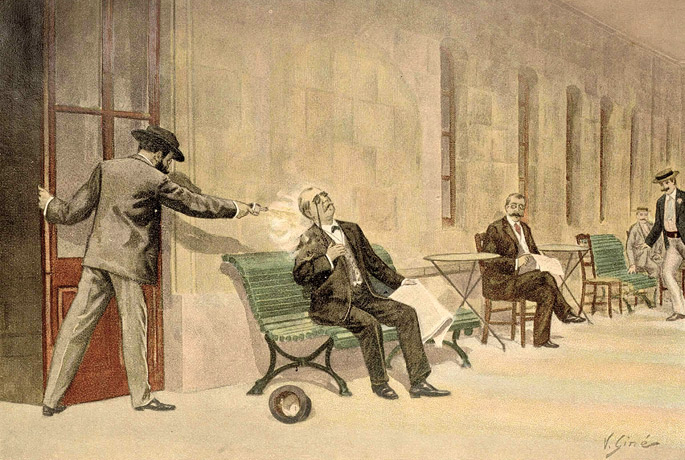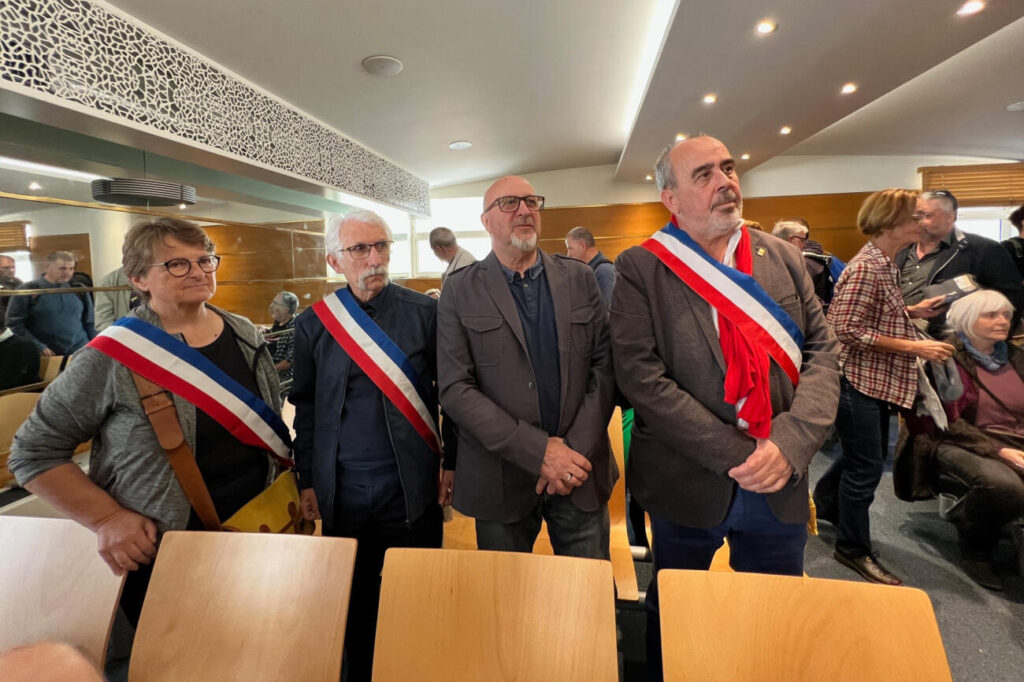When the collection is casus belli
- The foral system governing the tax structure of the Basque territories has been on many occasions in the history of the century and a half. From the war in Cuba to the time of Aznar, the threat of confrontation has been the key factor for the “pact”.

The main Basque financial instruments, the Basque economic concert and the Navarro agreement, have been brought into the whirlwind of political debate at a time when the crisis has drowned the communities of the general Spanish regime in debt. While the independentists have stepped down the accelerator in Catalonia, in Spain they have allowed themselves to "revise" the tax regime throughout the state.
The summer of 2015 has been very hot in this regard: in July, Finance Minister Cristóbal Montoro sent a letter to all communities to update their data on regional funding. Even in the extensive pre-campaign of the general elections in Spain, the major parties have referred to this "revision". Citizens are the extreme: in addition to changing the quota, Albert Rivera advocated the harmonisation of foreign agreements with the taxation of other communities. The adjectives “unsolidarity” and “privileged” have been filled with great yardsticks to the Basque tax system.
As the economist Baleren Bakaikoa pointed out in his pages, it is false that the economic agreement is not solidary. The CAV contributes 6.25% of the State Solidarity Fund, 1.6% of Navarre; we pay the same percentage as the state giant debt, the same percentage as to finance state infrastructure…
The former advisor to the Basque Government and banker of BBVA Pedro Luis Uriarte, who negotiated the Basque concert in 1978, is firmly defending the economic agreement – which has made available to download on the internet a book of over 3,000 pages with a free license. In his opinion, it is impossible to “have the privilege that was established as a sanction.” Naski, by the force of arms, speaks of the loss of the powers of 1876.
Lehendakari, Iñigo Urkullu, has striven to highlight the “bilaterality” of the agreement – “no unilateral change of the economic concert is a red line,” he said at the last world congress of the Basque centers. And yes, in 1919 the government of Spain, by decree, recognized this kind of pactist character, but if we analyze throughout history, we will see that there have actually been crises, wars and a threat of force. To do this, it is enough to read the article The Economic Concert: Genesis and Historical Evolution (Iure Vasconiae, 2009) by historians Gregorio Monreal and Roldán Jimeno, experts in the economic agreement.
“To the peace of peoples…”
When the Outings were still alive, the threats of Madrid were silenced through a “donation”. In 1799, Godoy was forced to abolish the forces and devour the promise to equalize all the tax regimes of the Crown in exchange for receiving an extraordinary tip from the deputies of Vascongadas and Navarra to solve the financial problems of the war against England. A century later, the same thing happened with the Cuban war: the gravity of the colony’s armed conflict led the Government of Spain to raise the quota of the economic agreement already underway to obtain money, which was finally settled through a “voluntary donation”.
On other occasions there has been an inverse situation. In 1914, the Banco bilbaíno Crédito de la Unión Minera became crack – with high-risk foreign debt on the eve of the Great War – and the Provincial Council of Bizkaia mobilized the “living forces” of the province until the government agreed to cover the hole left by the bank.
On the contrary, the State has imposed its will twice using weapons. It did so with the Cadiz Constitution, which abolished the outbreaks of the Basque territories and the entire tax system of its own. When in 1812 the General Boards expressed their misgivings about the new Constitution, especially in Bizkaia, the liberal government of Cadiz sent the military chief Francisco Xabier Castaños, with a specific mandate: “Let him trample on these upheavals and have the Constitution signed.”
History professor Joseba Agirreazkuenaga has said that at the end of each civil war the tax authority has provoked the debate about self-government. After the First Carlist War, in 1841, Navarre signed an agreement with a sale agreement. Child soldiers and prisoners parents/contributions in default... say the verses of Muñagorri that became well known. Three decades later, it was the turn of the other Basque territories: Carnovas del Castillo definitively abolished the excerpts and appointed the deputies prepared to establish military service and to approve the economic agreement.
In the 1936 civil war, General Franco signed two days after Bilbao took the decree that annulled the Gipuzkoa and Bizkaia conventions, but not that of Álava and that of Navarre, showing that it was a war sentence.
Germán Gamazo also ignited a small “war” with the budgets of 1893: the Minister of Finance proposed the imposition of the same taxes from all over Spain in the Basque territories and collected 120,000 signatures against the project, which has been considered the first mass mobilization of the Contemporary Age. Demonstrations, riots and clashes took place in the Gamazada, particularly in Navarre, but also elsewhere – in San Sebastian the Civil Guard killed 3 people by downloading the rifles against the demonstrators. All this reinforced the idea of “The Four One” between territories.
The shadow of violence and agreement have been the two sides of the same coin. Perhaps that is why in 1906 the deadline for renewing the concert was extended to 20 years, arguing that “it was in the interests of the peace of the peoples”.
The memory of the confrontations of the past has been present until today’s negotiations. In 2001, when Aznar extended the outstanding pact, the Basque Government which was in the hands of EAJ-EA described it as a casus belli. Can Urkullu’s “red line” be a kind of warning? However, the Jeltzale sector in power does not seem to be at the moment of activating its “living strengths”, at least in view of the pernicious action against other centralist projects that have harmed our work or educational environment.
On the Internet comes the title of a movie that I still saw when I was growing up looking for the word Willow. In this fantasy film, the protagonist, a small man named Willow, transformed the world by liberating its inhabitants from an oppressive kingdom. Google just launched a... [+]
Araia told me to write to you. He told me that before I leave them (I will do this this year), they want to take you a text of mine, which I have never taken you, and that you deserve, that you will be proud of me. Such an opportunity cannot be missed. I don't know what I can... [+]
I have recently had the opportunity to see the latest work by Pierre Carles, a committed documentary author. Under the name of Guérilla des FARC, l'avenir a une histoire (FARC guerrilla, the future has history), proposes a renewed account of the armed conflict that has lasted... [+]
The poor management of the Valencian cold drop has led to a change in adverse meteorological alerts, as shown in the first season of "winter". Faced with the threat of rivers overflowing in Hego Euskal Herria, the indications for protection came along several paths, since no... [+]
We're in chaos. That has been said to us by the French media, which Parliament has brought down the government on 4 December. The fear that political, institutional, social, economic chaos will rage us all in the horde of hell comes to our veins. What comedy we're going to play... [+]
In 2011, the powerful 15-M movement broke out, which put the Catalan Govern in a hurry. Among other things, on that occasion the Police ran into the indignant camp of the Plaza Cataluña de Barcelona and besieged the Parlament on the day that the activists had to approve the... [+]
























